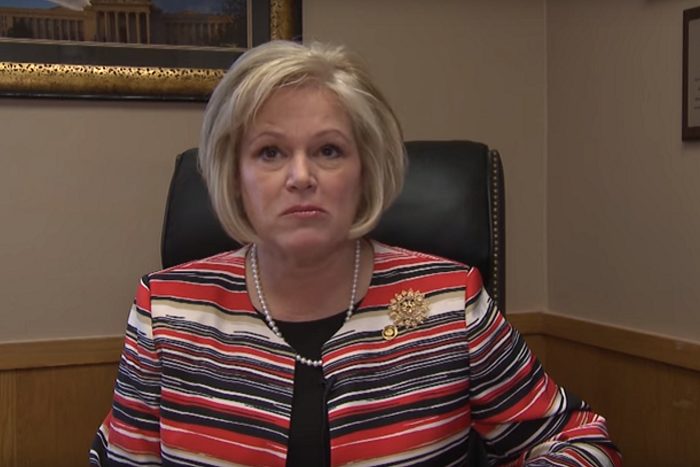Missouri Legislator Does About-Face, Pushes Birth Control Access
Increasing access to birth control has gained momentum in several states, and making contraceptives available without a prescription is a policy proposal popular among many state lawmakers.

A Missouri lawmaker who has supported restrictions on accessing contraception has sponsored a bill to increase access to birth control.
HB 1679, sponsored by Rep. Sheila Solon (R-Blue Springs), would allow pharmacists to prescribe and dispense “hormonal contraceptive patches and self-administered oral hormonal contraceptives.”
“This legislation is meant to eliminate barriers to accessing birth control, which include having to make multiple trips to a pharmacy, taking time off from your job to see a doctor, and waiting hours at a doctor’s office for a new prescription,” Solon told KOMU.
Increasing access to birth control has gained momentum in several states, and making contraceptives available without a prescription is a policy proposal popular among many state lawmakers.
The American Medical Association and the American Congress of Obstetricians and Gynecologists support removing the prescription requirement for hormonal contraception and making it available over the counter.
“We know that half of all pregnancies are unintended, but better access to birth control pills could decrease unintended pregnancies by 25 percent,” Solon said.
More than half of the 6.6 million pregnancies in the United States each year are unintended, according to the Guttmacher Institute. Missouri mirrors the country as a whole, with 51 percent of pregnancies in the state being unintended.
Oregon recently became the first state in the country to implement a law allowing pharmacists to prescribe and dispense birth control without a prescription. Passed by Oregon’s Democratic-majority house and state senate and signed by Gov. Kate Brown (D) in July 2015, the law took effect on January 1.
Solon’s bill is nearly identical to the Oregon law.
HB 1679 would allow a pharmacists to prescribe birth control, “regardless of whether the person has evidence of a previous prescription.”
However, for those younger than 18, a pharmacist could only prescribe birth control if the person has “evidence of a previous prescription from a primary care practitioner or women’s health care practitioner for a hormonal contraceptive patch or self-administered oral hormonal contraceptive.”
“With my bill, women will be able to have timely and convenient access to birth control, thus decreasing unintended pregnancies,” Solon said.
HB 1679 marks an about-face in Solon’s stance on access to contraception. She did not return Rewire’s request for an interview.
Bills that Solon has sponsored in previous legislation sessions were designed to create barriers to “timely and convenient access to birth control” by allowing pharmacists to refuse to fill prescriptions for it.
Bills sponsored by Solon in 2013 and 2014, both of which failed to pass, would have allowed medical professionals and health-care institutions to refuse to participate in medical procedures or research that violates their conscience, including the dispensing of contraception. The bills would have allowed refusal to participate in surgical and medication abortions, assisted reproduction, human cloning, and human embryonic stem cell research.
The bill would also have immunized medical professionals and health-care institutions from civil and criminal liability based on their refusal.
Solon has backed several other pieces of legislation that restrict women’s access to reproductive health care. She sponsored a 2014 bill that would require the Department of Health and Senior Services to conduct at least four annual inspections of any facility that provides abortion services. The GOP measure died in committee.
Solon sponsored a bill requiring the administration of the initial dose of RU-486 (mifepristone) or any other abortion-inducing drug to occur in the same room and in the physical presence of the physician who prescribed, dispensed, or otherwise provided the drug or chemical to the patient.
The bill was passed by the GOP-majority legislature in 2013 and became law without the governor’s signature. It bans the use of telemedicine for abortion care and creates a significant barrier to abortion access for women in rural areas.
HB 1679, the bill meant to expand access to birth control, was referred Wednesday to the Missouri House’s Emerging Issues committee.
